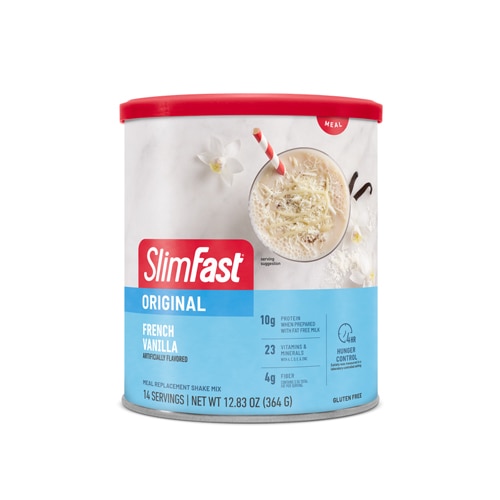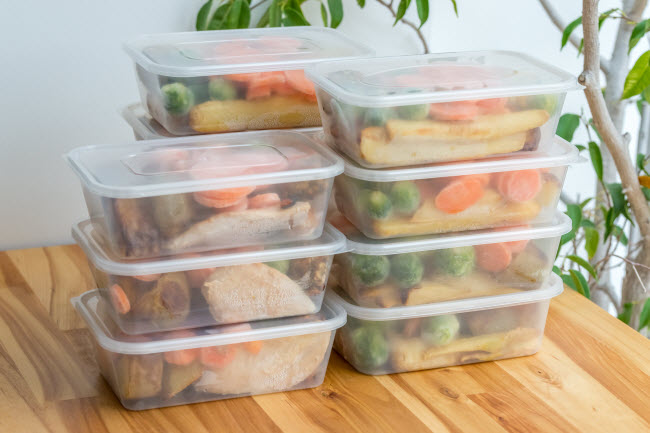Whether it’s all-you-can-eat tacos and margs at the best little Mexican restaurant, your third helping of Thanksgiving dinner or drowning your sorrows in ice cream after a terrible day at work, we all overeat sometimes. The eating may feel good at the time, but overeating isn’t exactly a feeling you’d want to bottle and sell.
Overeating can feel like a huge challenge to overcome. The key is to keep a balanced mindset. If it happens, don’t let it be an indicator of self-worth. It’s easy to think, “I ate so much. I was so bad!” But rest assured, overeating is in no way an indicator of your moral fiber and it does not make you a bad person.
Now, considering none of us want that “I swallowed a balloon and I’m about to burst” feeling, let’s talk about why people overeat, the effects it has and how to avoid it in the future.
Why do people overeat?
Ghrelin, sometimes called the “hunger hormone,” is tied to appetite. On the flipside, leptin is a hormone tied to feeling satiated or full. Very simply put, they work in synergy to let your body know when to eat and when you’re done.
While it’s helpful to know hunger and satiety hormones exist, it doesn’t mean there’s a way to get a quick read on them before you sit down for lunch, making it difficult to make your eating decisions around them in real time. We likely won’t have a way to answer the question, “What’s my ghrelin level like right now?” any time in the foreseeable future.
Let’s explore the full gamut of things that fuel the overeating fire. It can be physiological. Undiagnosed diabetes, vitamin or mineral deficiencies, or thyroid irregularities can all trigger overeating. It could also be more psychological; for example, stress, boredom or looking for comfort can lead to overeating. The urge to overeat can also be driven by things seemingly unrelated, like lack of sleep or forgetting to bring your water bottle with you for the day.
What are some effects of overeating
Besides creating the immediate need to change into sweatpants, overeating can have other effects on the body. After eating, the body increases the flow of blood to the stomach and intestines. Food consumed in larger volumes equals more work to digest. Cue those feelings of sluggishness and sleepiness. Overeating can also lead to acid reflux or indigestion. If done chronically over time, it can increase the risk of some chronic health conditions.
Tips to avoid overeating
Ask yourself about yourself
Every two to three hours, take a moment to pause and ask yourself, “Am I hungry? How hungry?” When focusing on something for long periods of time, it’s easy for hunger to sneak up on you. This might happen at work when you’re focused on a deadline. You look up from your project and think, “Wow, I’m ravenous!” Making a habit to check in with your body and your hunger can help prevent overeating. Try imagining a scale of one to 10 where 10 is max-level hangry, while one is full and content. Be proactive and consider having something to eat around five to seven rather than waiting until you feel an eight to 10 on the scale.
Bottoms up
Dehydration can mask its dry face as hunger. Your body is shouting “I need the essentials over here,” and that can be an easy cue to misread as needing to eat. You actually may just need to drink water. If you start eating, you may overeat because food isn’t fulfilling your body’s needs at the moment. The simple solution is to stay hydrated throughout the day. Start by getting into the habit of having a glass of water when you wake up.
Stress less
Multitasking and stress are two heavy hitters that drive overeating. Both can trigger mindless eating while doing something or eating as an emotional outlet. In both of cases, the power lies in stepping away. Think about what you really want, or the core of the problem. Is it a break from what you’re experiencing, and the eating allows that break? If this is case, physically removing yourself from the stressful situation can give you the mental break needed to help you avoid stress eating.
Eat your food and taste it too
Eat with the intent to enjoy your food! Really taste it. Teaching your brain to slow down and enjoy your meal (also known as mindful eating) can help combat overeating. Before going for a second serving of food, challenge yourself to describe the food with three adjectives. Think about the texture, flavor, temperature and the way it feels when you chew. Is it warm, savory and garlicky? Fresh, crisp and zingy? Pumping the breaks to appreciate the food can help you decide if you want more. Drawing a blank on how to describe it or have a “Meh, its just OK” moment? This can help you decide that you’re ready to be done eating!
When in doubt, sleep it out
Some studies show a link between lack of sleep and increased ghrelin (the hunger hormone) levels. More research is needed ,but getting adequate sleep won’t hurt. Be honest: are you your best self, making your best food choices when you’re exhausted? Nope. Having a good bedtime routine, including limited screen time near bedtime, can be a helpful tool to avoid overeating.
Be sure to seek support if you struggle to control overeating. Talk with your doctor about the resources you need and work with a registered dietitian.




